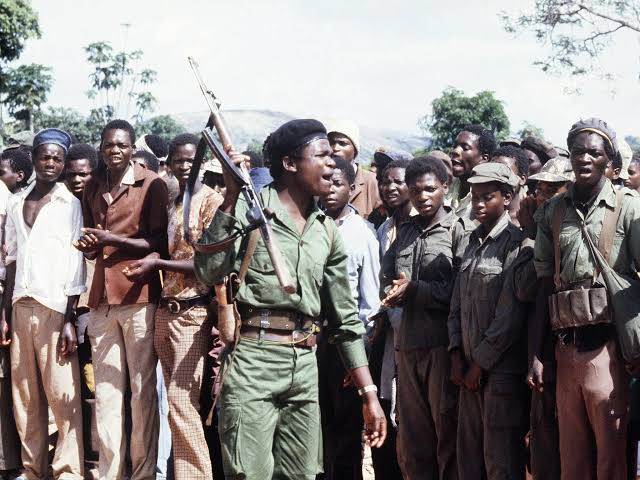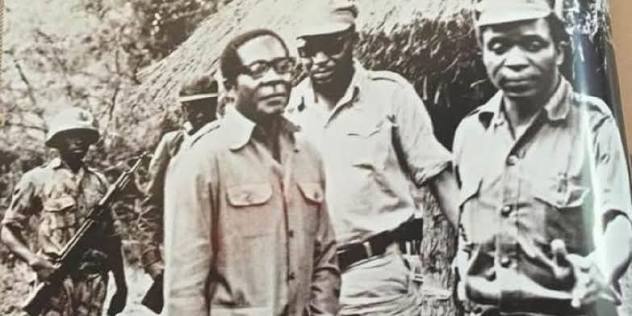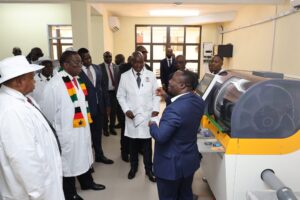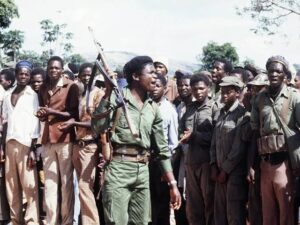From Revolutionary Socialism to the Spirit of “Us, Not Me”
5 min read
ZANU PF, the Revolutionary mass party, was founded on the strong ideological foundation of revolutionary socialism.
Guided by Marxist-Leninist principles, the party’s formation and growth were rooted in the struggle for collective liberation — not the pursuit of individual wealth or privilege. In its earliest vision, ZANU PF stood as a movement of unity and equality, a front forged in the crucible of the liberation war to dismantle the oppressive colonial structures and replace them with a just and egalitarian society.

At the heart of this ideological framework was the belief in egalitarianism over egoism — a rejection of individual greed and a commitment to the upliftment of the masses.
The party’s guiding philosophy emphasized that the independence struggle was not waged for personal gain, but for the collective dignity and sovereignty of the Zimbabwean people.
ZANU PF’s ideological roots can be traced back to the liberation movements of the 1960s and 1970s, which were deeply influenced by global revolutionary thought.
As freedom fighters drew inspiration from leaders such as Mao Zedong, Fidel Castro, and Vladimir Lenin, the liberation struggle became both a political and social revolution.
The Marxist-Leninist framework that shaped ZANU PF’s early direction centered on the working class and peasantry as the driving force of change.

It emphasized the redistribution of wealth, land reform, and social justice — ideas that were revolutionary in a colonial context where the majority of land and resources were in the hands of a small white minority.
In the words of early party thinkers, “The revolution was not about replacing one elite with another, but about dismantling systems of exploitation.”
ZANU PF sought to construct a Zimbabwean society based on equality, shared prosperity, and collective ownership of national resources.
The immediate years following independence in 1980 saw this ideology reflected in major national policies.
Education and health became the cornerstones of government investment. Thousands of schools were built across the country, and free primary education was introduced, allowing millions of children—especially from rural areas—to attend school for the first time.
Healthcare followed the same trajectory, as clinics and hospitals were established even in the most remote areas.
The goal was simple but profound – to make the fruits of independence accessible to every Zimbabwean, regardless of class, tribe, or location.
Land reform also became a defining feature of the party’s mission, reflecting its socialist roots.
The idea was to return land to the people, ensuring that Zimbabwe’s natural resources benefitted the many rather than the few.
“Land is the economy, and the economy is land” became a reaffirmation of the principle that wealth creation had to be collective, not individualistic.
At the ideological core of ZANU PF’s founding vision lies the enduring motto: “It was US, not ME.”
This was not merely a political statement — it was a moral compass meant to guide leadership and governance.
The liberation struggle had been fought by men and women who placed national liberation above personal ambition.
Fighters shared food, weapons, and even dreams. The collective spirit was so strong that personal survival often came second to the success of the mission.
That spirit of unity was meant to continue into independent Zimbabwe.
This philosophy promoted solidarity over selfishness, cooperation over competition, and service over self-interest.
It demanded that leadership be understood as a duty, not a privilege; as service to the people, not as a means of enrichment.
However, as with many post-liberation movements across Africa, the transition from revolutionary struggle to nation-building brought new challenges.
The ideals of socialism faced practical difficulties in a world dominated by capitalist economics and global financial systems.
Structural adjustment programs of the 1990s, introduced under pressure from international financial institutions, forced a shift toward market-driven policies.
These reforms, while intended to stabilize the economy, often contradicted the socialist principles upon which the party was founded.
The resulting inequalities, corruption, and the rise of individual accumulation marked a significant ideological departure from the founding spirit of “us, not me.”
The challenge for ZANU PF became how to reconcile its liberation ethos with the realities of governance in a modern global economy.
In recent years, the party has made efforts to re-center its revolutionary values.
The emphasis on empowerment programs, indigenization, and rural development has been framed as a continuation of the struggle for economic independence.
The Second Republic, under President Dr. Emmerson Dambudzo Mnangagwa, has revived discourse around unity, productivity, and national development — seeking to blend pragmatic economic policies with the original socialist vision of inclusivity and self-reliance.
Under this new thrust, national development is being positioned as a collective endeavor.
From agricultural transformation through the Pfumvudza/Intwasa program to community-driven infrastructure development, the message remains that progress must benefit all Zimbabweans, not a privileged few.
The Nyika Inovakwa Nevene Vayo (A country is built by its own people) philosophy echoes the spirit of ZANU PF’s founding ideology.
It is a reminder that national strength lies in collective participation and shared vision.
While some may argue that Marxist-Leninist ideology has lost relevance in a globalized, capitalist world, its core principles — equality, solidarity, and social justice — remain profoundly significant in Zimbabwe’s socio-political landscape.
Egalitarianism, as espoused by ZANU PF, was never meant to be a static ideology. Rather, it was a living philosophy that could evolve with the times while preserving its moral foundation.
In an era marked by widening global inequalities, the message of prioritizing community over self-interest is perhaps more relevant than ever.
As young Zimbabweans engage with questions of national identity, development, and justice, the party’s founding principles offer both a challenge and a guide: to pursue progress that uplifts all, and not merely the privileged few.
ZANU PF’s history cannot be divorced from its ideological DNA. It was born not as a party of privilege, but as a movement of the people — a revolutionary force that fought for freedom, dignity, and equality.
The slogan “It was US, not ME” remains a moral benchmark.
It challenges every generation of leadership to look beyond personal gain and remember the collective sacrifices that birthed the nation.
As Zimbabwe continues to chart its development path, the spirit of egalitarianism — the belief that the country’s destiny belongs to all its citizens — remains the essence of true liberation.
ZANU PF’s ideological journey, from Marxist-Leninist socialism to modern nationalism, reflects a broader African story: the struggle to balance the ideals of the revolution with the demands of a new world. But at its heart, the message endures — a nation built on unity, service, and shared prosperity will always stand stronger than one divided by greed.
In the words of one veteran of the liberation war, “We did not fight for me; we fought for us. That is the spirit we must never forget.”




